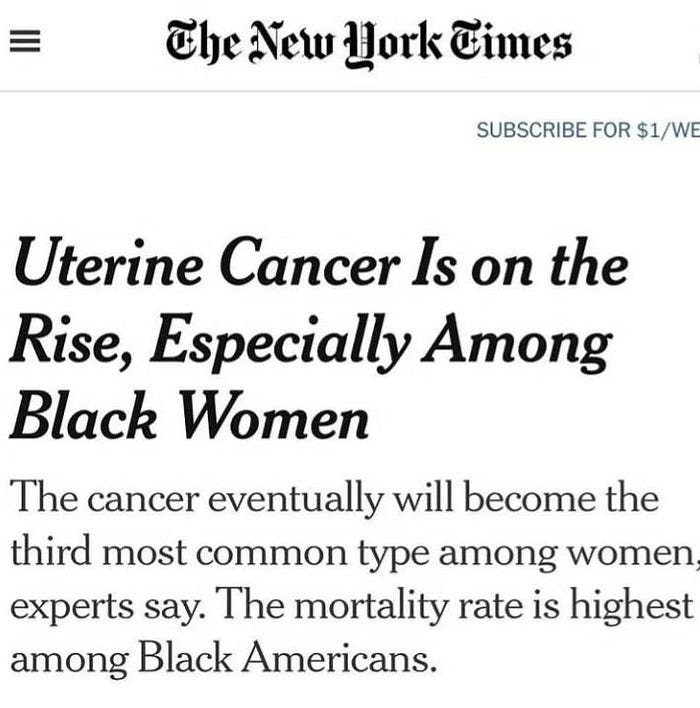Member-only story
September is Uterine Cancer Awareness Month
And why we should all be talking about it.

As I’ve been uncovering stories around Black maternal mortality (and, specifically the death of my grandmother following childbirth) for my next book, another reproductive health issue — uterine cancer — is getting more attention as it is impacting Black women disproportionately. In the past 15 years, new cases of the disease have doubled and Black women die at twice the rate of white women. But if caught early, survival rate is high.
This summer, the New York Times ran a feature about this issue — and it’s definitely worth the dollar a week subscription to read it. Here is an excerpt from the story by writer Roni Caryn Rabin:
Cancer of the uterus, also called endometrial cancer, is increasing so rapidly that it is expected to displace colorectal cancer by 2040 as the third most common cancer among women, and the fourth-leading cause of women’s cancer deaths.
The mortality rate has been increasing by almost 2 percent a year overall, with even sharper spikes among Asian, Hispanic and Black women, according to a recent study in JAMA Oncology. Despite the increase, there has been little public attention to the disease.
Overall survival rates are high when uterine cancer is detected early, but few women are aware that a change in menstrual bleeding, before or after menopause, is one of the main warning signs, along with pelvic pain and painful urination and intercourse.
Uterine cancer was long believed to be less common among Black women. But newer studies have confirmed that it is not only more likely to strike Black women, but also more likely to be deadly.
Black women die of uterine cancer at twice the rate of white women, according to a report in March from an expert panel convened by the American College of Obstetricians and Gynecologists.
The gap is one of the largest racial disparities observed for any cancer, the report said. Black women are also more likely to develop a form called non-endometrioid uterine cancer, which is more aggressive.









